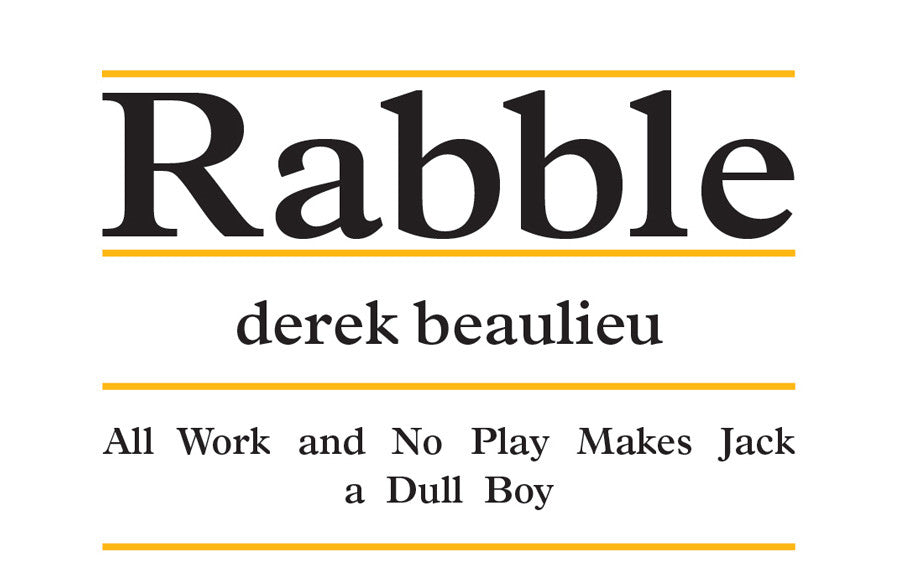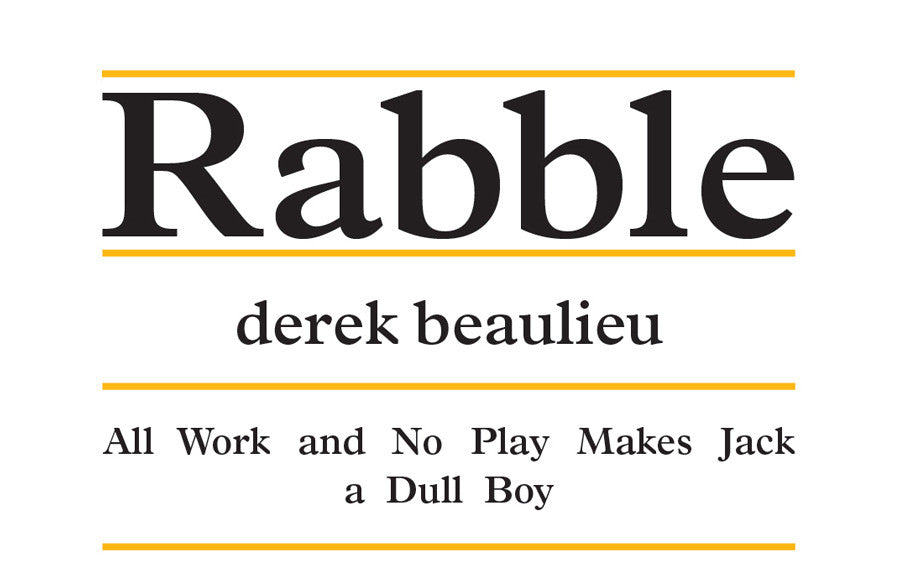Rabble: derek beaulieu
Rabble: derek beaulieu
Couldn't load pickup availability

Rabble: derek beaulieu
All Work and No Play Makes Jack a Dull Boy
"In Stanley Kubrick’s 1980 film adaptation of Stephen King’s The Shining, author Jack Torrance slowly loses his grip on sanity while ensconced in a winter-long residency as caretaker for the seasonally-closed Overlook Hotel. Over the season Jack, a struggling novelist, uses the solitude (interrupted only by his wife Wendy and son Danny) to attempt to construct his new novel. Only a few pages of Torrance’s efforts are revealed in The Shining, but every page consists wholly and entirely of the phrase “All work and no play makes Jack a dull boy” repeated ad infinitum over a presumably several-hundred-page manuscript. In the filmic reveal of Torrance’s creative masterpiece, Wendy emotionally collapses as she finally realizes the extent of her husband’s crumbling rationality. Under the mental anguish of this Sisyphean task of nonlinearity, Jack Torrance’s grip on reality is weakened, much as readers feel the strain of such a non-traditional manuscript."

Rabble, an imprint of Insert Blanc Press, is co-edited by Holly Myers and Mathew Timmons. Rabble prints single author issues of critical essays of about 1500 words on a subject of the author’s choosing. The subject will be an artwork (or series of artworks), but broadly defined: could be visual art, literature, music, architecture, film, design; could be contemporary or historical. The essay will be printed in pamphlet form, with room for a couple full color images, and distributed at a reasonable price.
Rabble seeks to be a venue through which to interrogate the nature of criticism, a laboratory for prodding at the boundaries of criticism as a form. The idea is to begin with a framework that reduces criticism down to its two fundamental components—the thing that's been made and the person who responds to the thing that's been made (i.e., the art work and the critic)—and invite each writer to take it from there. We’re not looking for the average book or exhibition review, but something that tests out a new direction, whatever that means to the individual author.
We have great confidence in the potential of Rabble to make a lasting contribution to the cultural discourse on the West Coast and beyond. It is our hope that, in charting a path between the two prevailing poles of the genre—the ever-narrowing shutters of print journalism on the one hand and the ponderous obscurity of the academy on the other—Rabble will go some way in restoring the sheer excitement of criticism.
ISSN 2168-7439


